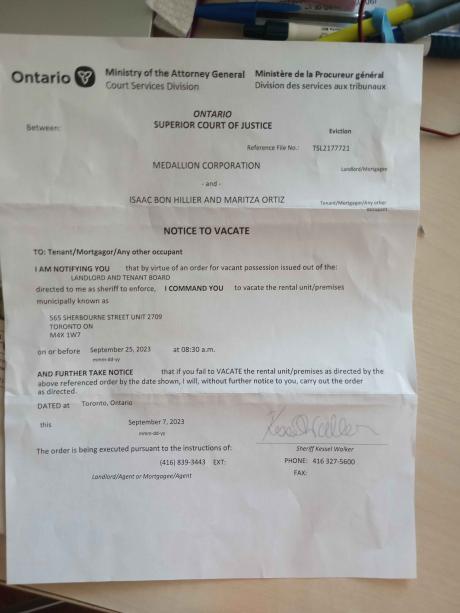Supreme Court of Canada
imposes general duty of good faith
in contract performance
The Supreme Court of Canada says 'good faith' is an implied term to all common law contracts.
Honesty isn’t just the best policy — it’s the law, the Supreme Court of Canada has ruled.
In a case released Thursday called Bhasin v. Hrynew, the court said Canadian contract law comes with a duty of good faith that requires parties to perform their contractual obligations honestly.
- “Finding that there is a duty to perform contracts honestly will make the law more certain, more just and more in tune with reasonable commercial expectations,” wrote Mr. Justice Thomas Cromwell wrote in the unanimous seven-judge decision.
Commercial lawyers have been following the case closely. Some specific areas of law, such as employment and insurance, come with implied terms of Good Faith. The question was whether the court might apply the doctrine of Good Faith to all deals made in Canada.
- “I think this is the most important contract case in 20 years,” said Neil Finkelstein of McCarthy Tétrault LLP, counsel for Harish Bhasin, the plaintiff who won the case.
“We’re going to find another series of jurisprudence arising out of this case over time about how far this duty of good faith and duty of honesty goes.”
Justice Cromwell acknowledged that the common law has long resisted acknowledging a general duty of good faith in contracting outside those specific areas. The piecemeal approach of Canadian common law is out of step with the civil law in Quebec and in most U.S. jurisdictions, he wrote.
- “In my view, it is time to take two incremental steps in order to make the common law less unsettled and piecemeal, more coherent and more just.
The first step is to acknowledge that good faith contractual performance is a general organizing principle of the common law of contract which underpins and informs the various rules in which the common law, in various situations and types of relationships, recognizes obligations of good faith contractual performance.
The second is to recognize, as a further manifestation of this organizing principle of good faith, that there is a common law duty which applies to all contracts to act honestly in the performance of contractual obligations.”
Mr. Bhasin, the plaintiff, had a business that sold RESPs. He struck a deal to sell his customers RESP products provided by the defendant. The contract automatically renewed every three years. Either party had a non-renewal right on six months’ notice. The written agreement did not require the company to provide a reason for ending the deal.
Mr. Bhasin argued that the contract was terminated in bad faith. He won a judgment in an Alberta trial court, but that decision was overturned by the Alberta Court of Appeal. The provincial appellate court found that the trial court had erred by implying a term of good faith in a deal that contained a clear, unambiguous termination clause.
The Alberta appellate ruling was appealed to the Supreme Court of Canada, which heard the case last February.
Justice Cromwell said the respondent RESP company, which was formerly known as Canadian American Financial Corp. (Canada) Ltd., misled Mr. Bhasin about the circumstances involving the termination of the agreement in May 2001. The judge awarded him damages of $87,000 plus interest.
Eli Lederman of Lenczner Slaght Royce Smith Griffin LLP, counsel for the defendants, said the case fills a gap in Canadian law by creating a general organized principle that parties are to act honestly in the performance of all contractual obligations. Yet that does raise questions, he said.
- “What does it mean if you have a generalized duty to act honestly in your contractual obligations? When you exercise a contractual right not to renew an agreement, does that you mean you have to explain your reason for doing so?”
Counsel for Mr. Bhasin argued in their factum that the freedom to contract comes with reasonable limits. Good faith should exist when a party is exercising a discretionary power that can devastate a counter party, they wrote. He was represented by Mr. Finkelstein and Brandon Kain of McCarthy Tétrault LLP, John McCamus of Davis Ward Phillips & Vineberg LLP and Stephen Moreau of Cavalluzzo LLP.
- “The law of contracts is not exempt from basic requirements of honesty and fairness,” Mr. Bhasin’s lawyers argued. “One need look no further than the existing jurisprudence of this court, which recognizes the duty of good faith in employment, insurance and tendering agreements, in addition to cases like this one where a discretionary power is exercised for an improper purpose so as to defeat a party’s legitimate contractual objectives.”
Mr. Lederman, Jon Laxer and Constanza Pauchulo of Lenczner Slaght, counsel for the defendant RESP company, countered that the first principle of common law contracting is that parties are bound by the terms they have agreed to, not what they ought to have agreed to. “To succeed in this appeal, Mr. Bhasin must persuade this Court to adopt a radically new contract model which would give effect to new, unbargained for rights and obligations,” they wrote.







Comments